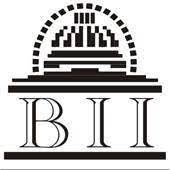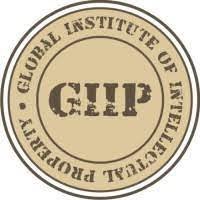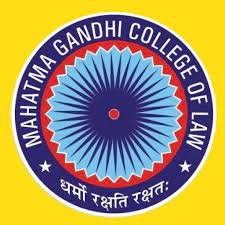Explore the bright future and benefits of a Certificate in Intellectual Property. Gain valuable insights into this dynamic field for a fulfilling professional journey.
Future Scope & Benefits of Certificate in Intellectual Property
In today's rapidly evolving knowledge-based economy, intellectual property (IP) has emerged as a cornerstone of innovation and business success. A Certificate in Intellectual Property stands as a testament to one's expertise in navigating the intricate landscape of patents, trademarks, copyrights, and more. This certificate not only holds substantial promise for future career prospects but also provides a host of tangible benefits for professionals seeking to excel in this specialized field.
Certificate in Intellectual Property: Future Scope
A Certificate in Intellectual Property opens doors to a range of promising career paths. Graduates can excel as IP attorneys, corporate counsel, patent agents, or contribute to technology transfer offices and government agencies. The specialized knowledge gained equips them for high-demand roles in a global context.
1. Legal Practice: Holding a Certificate in Intellectual Property opens the door to a dynamic legal career. Graduates are equipped with a profound understanding of IP laws, enabling them to specialize as IP attorneys. These professionals are entrusted with the crucial task of safeguarding the intellectual assets of individuals and businesses. Whether in private practice or within a corporate legal department, the demand for skilled IP attorneys remains robust.
2. Corporate Counsel: In-house legal departments of companies across various industries increasingly seek experts in intellectual property. A Certificate in Intellectual Property positions graduates as invaluable assets, ready to guide organizations in managing their IP portfolios. This includes advising on patent strategies, trademark registrations, and copyright protection, ensuring that businesses can leverage their intellectual assets effectively.
3. Patent Agents: For those inclined toward the technical and inventive aspects of intellectual property, a Certificate in Intellectual Property can serve as a launchpad to a fulfilling career as a patent agent. These professionals specialize in preparing and prosecuting patent applications, playing a pivotal role in securing exclusive rights for inventors. Their work is instrumental in driving technological advancement and protecting the fruits of human ingenuity.
4. Technology Transfer Offices: Universities and research institutions are hotbeds of innovation, generating groundbreaking discoveries with the potential to revolutionize industries. These institutions often have dedicated offices focused on transferring technology from the laboratory to the marketplace. Graduates with a Certificate in Intellectual Property are uniquely poised to excel in these environments, possessing the expertise to navigate the complex terrain of IP laws and regulations, ultimately facilitating the commercialization of cutting-edge research.
5. Government Agencies: Governments worldwide recognize the pivotal role of intellectual property in fostering innovation, economic growth, and competitiveness. Consequently, various governmental bodies are entrusted with formulating policies, regulations, and enforcement mechanisms related to IP. Professionals armed with a Certificate in Intellectual Property are well-prepared to contribute to these endeavors, ensuring that the legal framework surrounding intellectual property remains robust and conducive to innovation.
6. Consulting and Advisory Services: Intellectual property is a linchpin of modern business strategy. Companies, ranging from startups to multinational corporations, seek expert guidance on how to effectively protect, monetize, and enforce their intellectual assets. Graduates with a Certificate in Intellectual Property can embark on consultancy careers, providing invaluable advice to businesses looking to navigate the intricate landscape of IP. This encompasses tasks such as evaluating IP portfolios, structuring licensing agreements, and devising enforcement strategies.
Benefits of a Certificate in Intellectual Property
Possessing this certificate provides a competitive edge in the job market. Graduates with expertise in IP law and management command higher salaries. They play a pivotal role in safeguarding intellectual assets, contributing to innovation, and facilitating international collaborations. This specialization offers a fulfilling career path in a knowledge-driven economy.
1. Specialized Expertise: A Certificate in Intellectual Property signifies a profound dive into a highly specialized field of law. This focused expertise equips graduates with the knowledge and skills needed to tackle intricate legal issues surrounding patents, trademarks, copyrights, and more.
2. Competitive Edge: In a fiercely competitive job market, possessing a Certificate in Intellectual Property sets individuals apart. It demonstrates a commitment to mastering a niche area of law that is increasingly relevant in today's knowledge-driven economy.
3. Lucrative Opportunities: The specialized nature of intellectual property law and management translates into higher earning potential for professionals in this field. Companies place a premium on individuals who can expertly navigate the complexities of IP, making them well-positioned to negotiate favorable compensation packages.
4. Global Relevance: Intellectual property rights are universally recognized, transcending borders and jurisdictions. This global applicability means that professionals with expertise in IP have the opportunity to engage in international collaborations, transactions, and legal proceedings.
5. Contributing to Innovation: Intellectual property professionals play a pivotal role in nurturing innovation. By safeguarding the rights of creators, they create an environment where inventors and innovators are incentivized to push the boundaries of knowledge, ultimately driving progress and economic growth.
6. Personal Fulfillment: Protecting intellectual property is not merely a legal endeavor; it is a mission to preserve the fruits of human creativity and ingenuity. Professionals in this field derive immense satisfaction from knowing that they are instrumental in ensuring that innovators receive the recognition and protection they deserve.
 1 Years
1 Years
 Certificate
Certificate
 Medical
Medical
 Full Time
Full Time















 back
back

